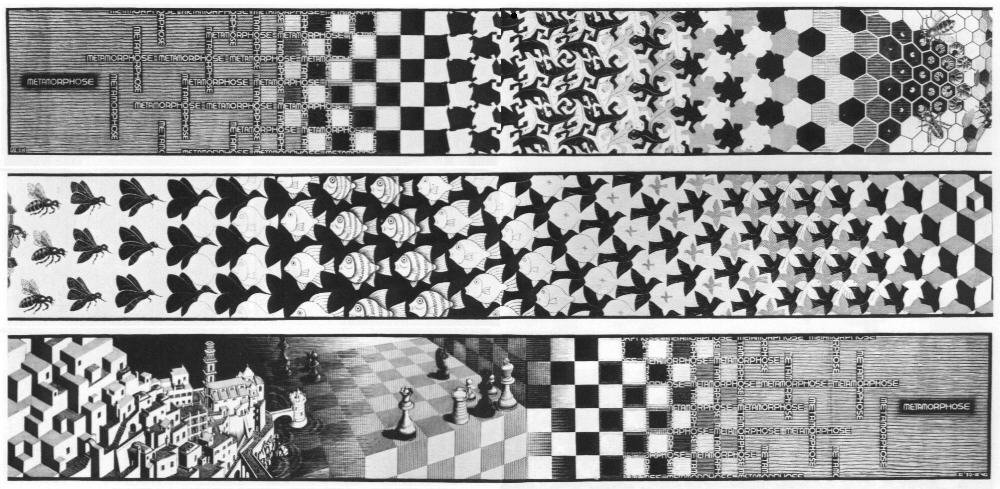The phrase "human chauvinism" is taken from an idea that Douglas Hofstadter describes in "Godel, Escher, Bach" (although he calls it "earth chauvinism"). I'm extrapolating Hofstadter's ideas into my own thesis here, but let me define human chauvinism as "the notion that humans have a monopoly on information-gathering". To give you some background, I'll explain what Hofstadter means by earth chauvinism.
Hofstadter prefaces earth chauvinism with an extended analogy of messages, meanings, and how messages are interpreted by intelligence. A message is compared to a record, the meaning is compared to the music isomorphically encoded within the record, and the interpreting intelligence is compared to a jukebox. Hofstadter explains that different records could be played differently by different jukeboxes; thus, a single record would not have the same music (meaning) everywhere. Likewise, the meaning encoded in a message is not invariable; it is not an intrinsic, unalterable property of the object.
In our minds, Hofstadter explains, "the ascribing of meaning to a message comes from the invariance of the processing of the messages by intelligences distributed anywhere in the universe". We could say that a message's meaning is completely intrinsic if and only if every single intelligence in the universe interpreted it in exactly the same way (which is highly improbable). Humans, of course, are used to the way that humans interpret messages, although a fair degree of variance does exist between cultures, languages, perspectives, etc. Human chauvinism, or earth chauvinism, occurs when we assume that our method of interpretation is universal, simultaneously excluding the possibility of messages or meanings that cannot be interpreted using our method.
Breaking free of chauvinism is done by "imagin[ing] that there could exist other kinds of 'jukeboxes'--intelligences--which communicate among each other via messages which we would never recognize as messages". Such speculation opens our minds to other methods of interpretation beyond those which we are accustomed to using. The most simple level of "meaning-interpretation" for us is done involuntarily by the sensory nervous system, the five "jukeboxes" we refer to as sight, hearing, smell, taste, and touch. From this basic input, through the millennia, we have created additional, more complex jukeboxes such as science, philosophy, mathematics, and every other academic discipline known to man.
What does this all have to do with my belief in God? For one, I think it highlights the irrationality of empiricism, the idea that knowledge comes completely from sensory experience. To say that all information comes through the five senses is to say that there are no other ways of interpreting meaning or gathering information. In a less extreme sense, to say that all worthwhile information comes through the five senses is to say that there are no other worthwhile ways of interpreting meaning. It is to discredit the existence of countless plausible forms of information and truth simply because they are inaccessible to us.
To those who haven't figured out where I'm going with this, here it is: a supreme being (or any intelligence for that matter) does not have to conform to our system of information-gathering in order to communicate with us. The idea that no one has found any sensory evidence of a supreme being does not and cannot imply that such a being is nonexistent. The only way that this conclusion could logically stand is if our sensory system was, in fact, the embodiment of all possible forms of information-gathering. I find this extremely improbable.
At this point, one might ask, "If God doesn't have to communicate through the five senses, how will we know of his existence?" My reply is that we need to break away from chauvinism and entertain the possibility of other forms of information transmission in the past and the present. As a Mormon, I consider the most important of these to be the Holy Ghost, but I certainly am not limiting it to that. I intend to give a sampling of some examples of alternative information transmission (that which I consider to be communication from God) from my own life, which leads me into my next post.

No comments:
Post a Comment